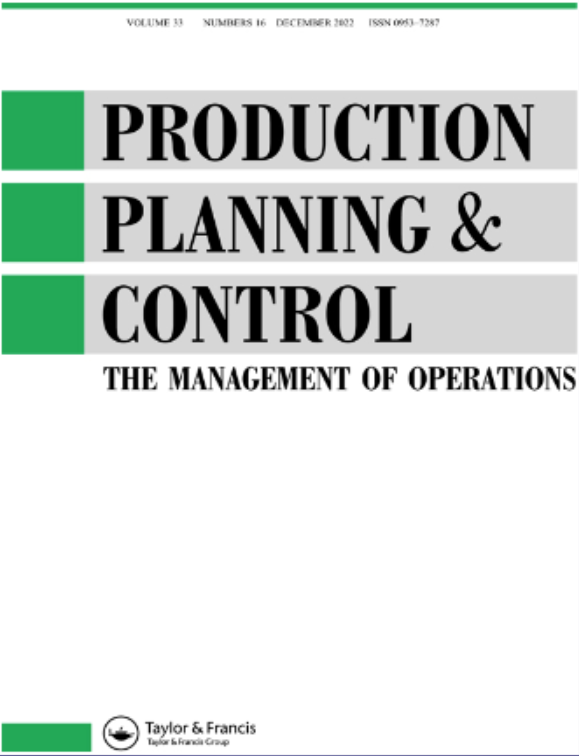Business ecosystem embeddedness to enhance supply chain competence: the key role of external knowledge capacities
IF 5.4
3区 管理学
Q1 ENGINEERING, INDUSTRIAL
引用次数: 7
Abstract
Abstract Interest in business ecosystems has grown exponentially over the last decade. This article focuses on the operational benefits of business ecosystems by investigating how embeddedness in business ecosystems influences supply chain competence. Specifically, it considers the mediating effect of external knowledge capacities (i.e. absorptive, desorptive and connective capacity). Data from 271 European firms in business ecosystems was collected to test the paper’s hypotheses using regression analysis with bootstrapping. Results indicate that business ecosystem embeddedness does not in itself improve supply chain competence. Rather, the relationship is explained through (i) absorptive and desorptive capacity as direct mediators; and (ii) connective capacity, which enhances supply chain competence indirectly by improving external knowledge retention for absorptive and desorptive capacity. To the best of our knowledge, this is the first paper to demonstrate benefits of being embedded in business ecosystems other than in terms of innovation. Newly validated scales for business ecosystem embeddedness and connective capacity are provided.商业生态系统嵌入对供应链能力提升的作用:外部知识能力的关键作用
在过去十年中,人们对商业生态系统的兴趣呈指数级增长。本文通过研究商业生态系统中的嵌入性如何影响供应链能力来关注商业生态系统的运营效益。具体而言,它考虑了外部知识能力(即吸收能力、解吸能力和连接能力)的中介作用。本文收集了271家欧洲企业在商业生态系统中的数据,利用回归分析和bootstrapping对本文的假设进行了检验。结果表明,商业生态系统嵌入性本身并不能提高供应链竞争力。相反,这种关系可以通过(i)吸收和解吸能力作为直接中介来解释;(ii)连接能力,通过提高吸收和解吸能力的外部知识保留来间接提高供应链能力。据我们所知,这是第一篇证明嵌入商业生态系统的好处的论文,而不是在创新方面。提供了商业生态系统嵌入性和连接能力的新验证尺度。
本文章由计算机程序翻译,如有差异,请以英文原文为准。
求助全文
约1分钟内获得全文
求助全文
来源期刊

Production Planning & Control
管理科学-工程:工业
CiteScore
19.30
自引率
9.60%
发文量
72
审稿时长
6-12 weeks
期刊介绍:
Production Planning & Control is an international journal that focuses on research papers concerning operations management across industries. It emphasizes research originating from industrial needs that can provide guidance to managers and future researchers. Papers accepted by "Production Planning & Control" should address emerging industrial needs, clearly outlining the nature of the industrial problem. Any suitable research methods may be employed, and each paper should justify the method used. Case studies illustrating international significance are encouraged. Authors are encouraged to relate their work to existing knowledge in the field, particularly regarding its implications for management practice and future research agendas.
 求助内容:
求助内容: 应助结果提醒方式:
应助结果提醒方式:


